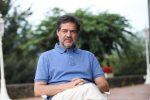Today, at the hour the sun drips from the dry elm branches,
william sat next to me on the brakewater wall.
He adjusted his specs, turned towards the coastline, the most
visible from where we stood, in the direction of rosses point, and spoke:
‘what if I told you we love them and they don’t know?’
His gaze paused on the hills, their flat grasses leaning over the cliffs to the sea,
and followed their shadows, contemplating them in docile fantasy,
as on the mornings when, dispirited, he followed the drumcliffe mists.
‘What if I told you not to hand over your whole heart;
whoever offers his whole heart will end up with nothing’.
He bent slightly down, his hair covered his brow, just as it had been drawn by his father in the portrait,
his twenty something years slipped away, his face cracked, losing its angle
to reveal itself as the ruined entrails of a house with a colourful façade.
And at the time when the backyards were opened to the neighbours, in sligo,
where by chance the sea thickens the houses, nevertheless distinct, around the bay,
william confessed he had discovered nothing, he had mistaken everything and
all was a sham, no matter how often this was denied by soft lips.
Then he gave me his hand and stood up. He asked me to walk with him.
He took himself to the clearing where in his childhood he had scratched the earth for roots
and where on a stormy Sunday , while seeing no one, he had been pushed from behind.
I know who gave his whole heart and lost everything. But they don’t know,
they don’t imagine that from kiss to kiss they’ll be consumed.
Later, knowing, he left. Just as she had left, with the first
September rains when she went by the canal a couple of times,
shooed away the four birds, the four kisses from her shoulders.
He knew he had never followed the stone walls and the towering towers,
trailed the tributaries and the small forts of the devastated islands
without having left behind for a single day, among songs and presages,
her elm-tanning eyes, her birds on the shoulder.
And william who, as the years went by, became distinctly gentle, harmonious,
just days before he flanked the white square hinged door, as evening fell,
sat again with me like twenty odd years ago on the sligo bay,
at the time when from the other world across the sea, every seven years,
she would appear under the waves of the fabulous isles, on the sands of the enchanted land,
to hand over her heart so that the four birds could land on it
and they could kiss four times goodbye.
© Translated by Ana Hudson, 2011
Hoje, à hora em que o sol descai…
Hoje, à hora em que o sol descai nas hastes secas dos ulmeiros,
william sentou-se comigo no paredão do cais.
Ajeitou os óculos, virou-se para o prolongamento da costa, mais
visível, do ponto em que estávamos, na direcção de rosses point, e falou:
“e se te disser que as amamos e elas não sabem?”
Deteve-se nos montes, na sua erva rasa que da escarpa acomete ao oceano,
e permaneceu a seguir-lhes as sombras, a completá-las com fantasias dóceis,
como nas manhãs em que, cabisbaixo, seguia os nevoeiros de drumcliff.
“E se te disser que não entregues o coração completamente;
aquele que todo o coração ofereceu tudo acabará por perder”.
Inclinou-se, a madeixa caiu-lhe na testa, tal a traçara o pai para o retrato,
e os seus vinte e poucos anos escoaram, o rosto desuniu-se, perdeu o ângulo
para revelar-se como o ventre ruinoso de uma casa sob a fachada colorida.
E à hora em que os quintais se abriam à vizinhança, em sligo,
onde por acaso só ao redor da baía o mar adensa as casas, de resto nítidas,
william confessou que nada descobrira, que em tudo se enganara e
tudo era um logro, por muito que nelas os suaves lábios o desmentissem.
Depois estendeu-me a mão e levantou-se. Pediu para caminhar com ele.
Levou-se à clareira onde na infância esgravatava a terra à procura das raízes
e sentira, sem ninguem ver, um empurrão nas costas, num domingo de tempestade.
Conheço quem todo o coração deu e perdeu tudo. Mas elas não sabem,
elas não sonham que de beijo em beijo se irão sempre consumindo.
Mais tarde, soube-o, partiu. Tal como ela havia partido, ao chegarem as
primeiras chuvas de setembro quando por um par de vezes passou no canal
e expulsou os quatro pássaros, os quatro beijos dos seus ombros.
Soube-o que jamais seguiu os muros de pedra e a arquitectura das torres,
contornou os afluentes e os fortins das ilhas devastadas,
sem por um dia deixar para trás, por entre as canções e os prenúncios,
os seus olhos bronzeadores dos ulmeiros, os seus pássaros nos ombros.
E william, que com os anos se foi tornando distintamente leve, harmonioso,
nas vésperas de flanquear a branca porta quadrada sob os gonzos, ao entardecer,
voltou a sentar-se comigo como à vinte e poucos anos na baía de sligo,
à hora em que do outro mundo de além mar, de sete em sete anos,
ela aparecia sob as ondas das ilhas fabulosas, nos areais da terra encantada,
e lhe entregava o coração para que nele poisassem os quatro pássaros
e os dois pudessem despedir-se com quatro beijos.
in A Função do Geógrafo, 2000
